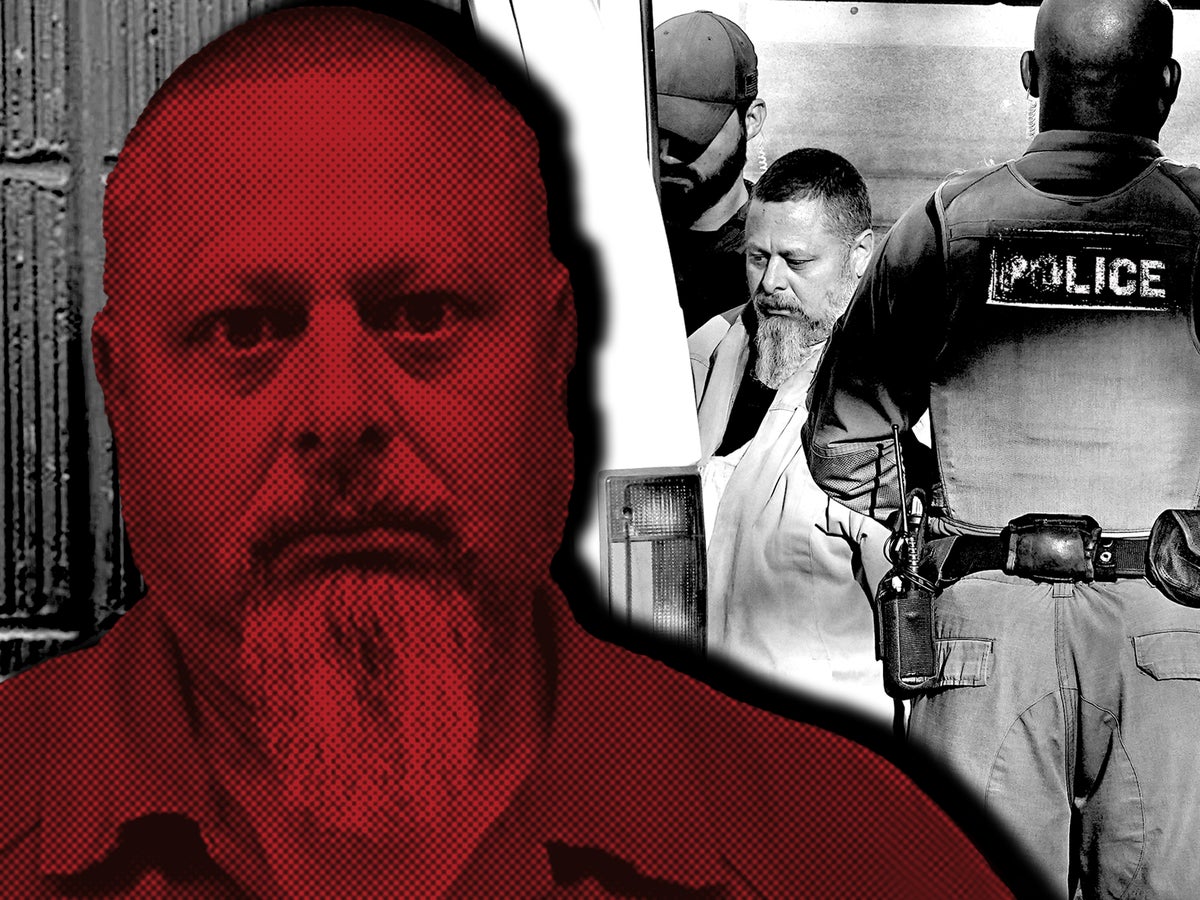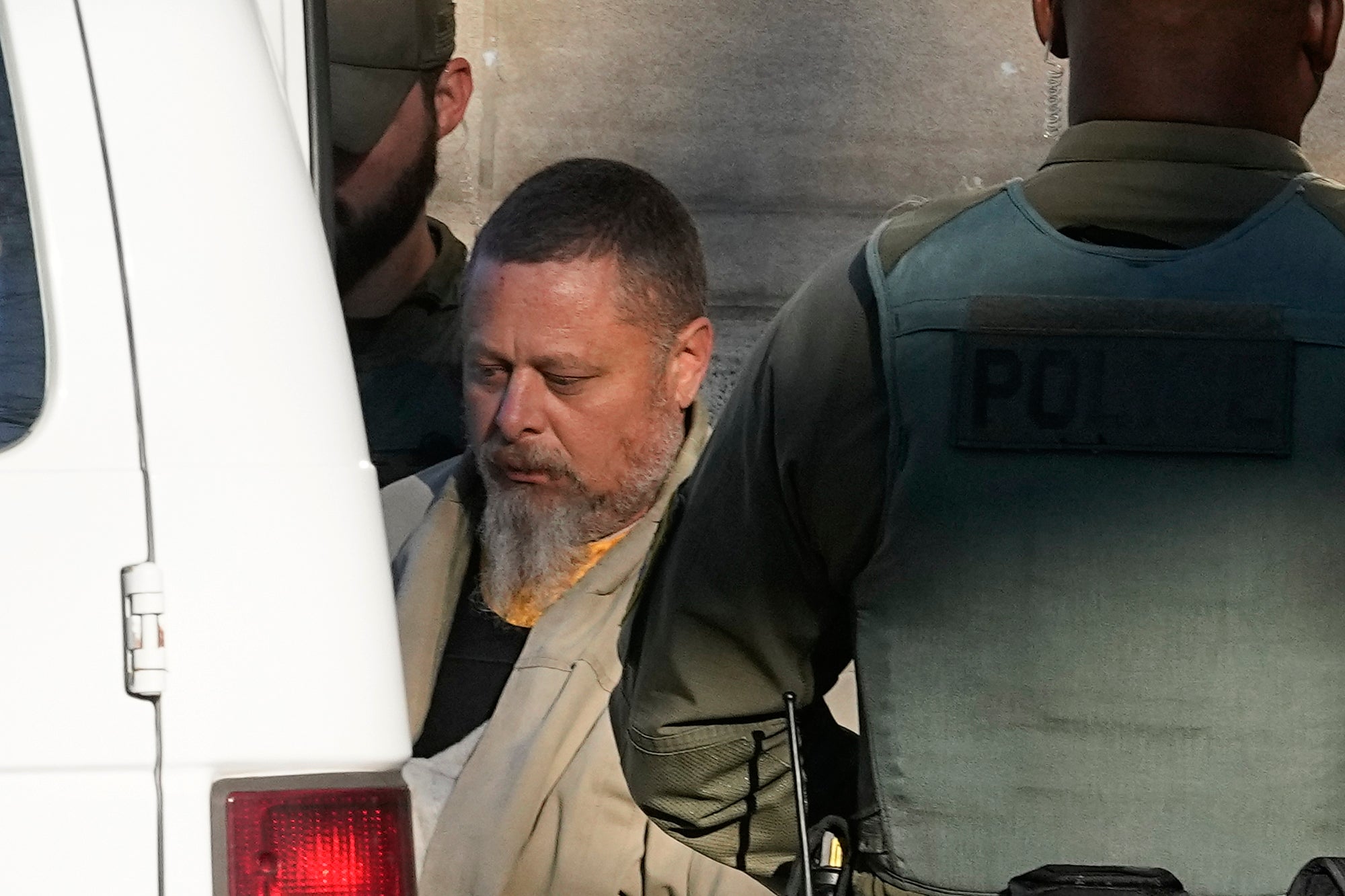
Delphi murders suspect Richard Allen slipped through the net of law enforcement back in 2017 due to a “clerical error”, it has been revealed.
Áine Cain and Kevin Greenlee, creators of the The Murder Sheet podcast, told The Independent on Thursday that a civilian FBI employee mislabeled or misfiled information about Mr Allen when he was interviewed by police not long after the murders of Libby German and Abby Williams in Delphi, Indiana.
As a result, Mr Allen’s name fell off the radar and the case went unsolved for more than five years.
Finally, an investigator trawling through old files uncovered the misplaced information and the 50-year-old local man was arrested and charged with the murders in October.
“What happened here was some sort of clerical error or misfiling by a civilian employee of the FBI,” Ms Cain told The Independent.
“It was not a malicious error just an unfortunate mistake where a clerical error let the Richard Allen tip sink to the bottom of the whole file essentially.
“And only recently when someone was going through the old tips, they found that tip and thought ‘we need to follow up’.
“So when people ask ‘why has it taken five years to loop back to Richard Allen? that’s what we’ve learned.”
Mr Greenlee added: “It was not the result of someone calling in a tip or someone incarcerated speaking up now but it was someone in law enforcement going through old tips and discovering information from 2017.”
The revelation that it was a clerical error that enabled the accused killer to walk free for more than five years – also confirmed by a law enforcement source to local outlet Fox59 – comes after it emerged that Mr Allen was questioned about the murders back in 2017.
A redacted version of the probable cause affidavit was released on Tuesday, finally laying out what led law enforcement to the suspect.
The bombshell document reveals that the local CVS worker and married father to a daughter had actually been on the radar of law enforcement at the time of the murders.
Mr Allen was interviewed by police back in 2017 and confessed to being at the crime scene at the time of the murders.

According to the affidavit, he said that he was on the Monon High Bridge Trail between 1.30pm and 3.30pm on 13 February 2017 – placing himself on the scene at the same day and time that the victims went on their fateful walk.
At the time, he denied any involvement in the murders and insisted he hadn’t even seen the two girls that day.
Teenage best friends Libby, 14, and Abby, 13, had been dropped off at the entrance to the trail at 1.49pm to go on a hike, the documents state.
Just over 20 minutes later at 2.13pm, Libby captured a man long believed to be the killer in a grainy video on her phone.
The man dressed in blue jeans, a blue jacket and a cap – known as “bridge guy” – was walking along the abandoned railroad bridge. In the footage, the man tells the two girls: “Guys, down the hill.”
One of the teenagers is heard saying the word “gun” in the footage, the affidavit says. That appears to be the last proof of life of the victims.
The girls’ bodies were found the next day in a wooded area less than half a mile from the trail.
Detectives working on the case now believe that Mr Allen is the man captured in that video and that he led the victims down the hill to where he killed them, the affidavit says.
Despite placing himself at the scene back in 2017, the investigation into the murders rumbled on for more five years before he was finally interviewed again this October.
While he continued to deny any involvement in the murders, investigators this time carried out a search of his home and found a firearm.
Forensic testing revealed that an unspent .40 caliber round found next to the victims’ bodies came from that gun, the affidavit says.
Mr Allen owned the Sig Sauer Model P226 since 2001 and both he and his wife Kathy allegedly confirmed that he was the only person with access to it.
A vehicle matching the description of one belonging to Mr Allen was also spotted by several witnesses parked close to the trail and a “creepy” man matching the description of “bridge guy” was seen by several people on the trail, the documents state.

The Independent reached out to Abby’s mother Anna Williams and Libby’s grandfather Mike Patty who both said they were not ready to speak about the affidavit.
Ms Cain said that it was “surprising” to learn that Mr Allen had placed himself at the scene of the murders that day – as it seems that this admission ultimately led investigators to hone in on him.
“The witness accounts are a bit flakey as people couldn’t largely see the man’s face so it’s surprising that he put himself at the scene that day,” she said.
The document had been under lock and key since Mr Allen’s arrest as prosecutors asked a judge to keep it sealed to protect the investigation, saying they believe that he may not be the sole person involved in the killings.
Following a court hearing last week, a judge on Tuesday ordered a partially-redacted version to be released to the public.
The details indicate that it was not new evidence, new information or new tips that led investigators to Mr Allen – raising questions about whether the case could have been solved and Abby and Libby’s families could have had answers years ago.
Ms Cain said that it’s “too soon to tell” if – without this “human error” – the case could have been solved a long time ago.
“But everyone can agree five years is a long time to wait to circle back on a tip... I think it’s hard to say what would have happened if it had been followed up on in 2017,” she said.
“But [the fact] it was a credible tip and lead in 2022 shows things could have happened sooner.”
While it may no doubt be disappointing to the victims’ families and the Delphi community, Ms Cain said that it’s not uncommon for human errors like this to crop up “in large sprawling cases”.
“It can happen in large sprawling cases where the cases are huge and there’s multiple agencies investigating over many years,” she said.
“The investigators have put in a lot of dedication and time and effort here so it’s not for a lack of trying so I don’t think there should be anger at this human error – but it is important to highlight it.”







